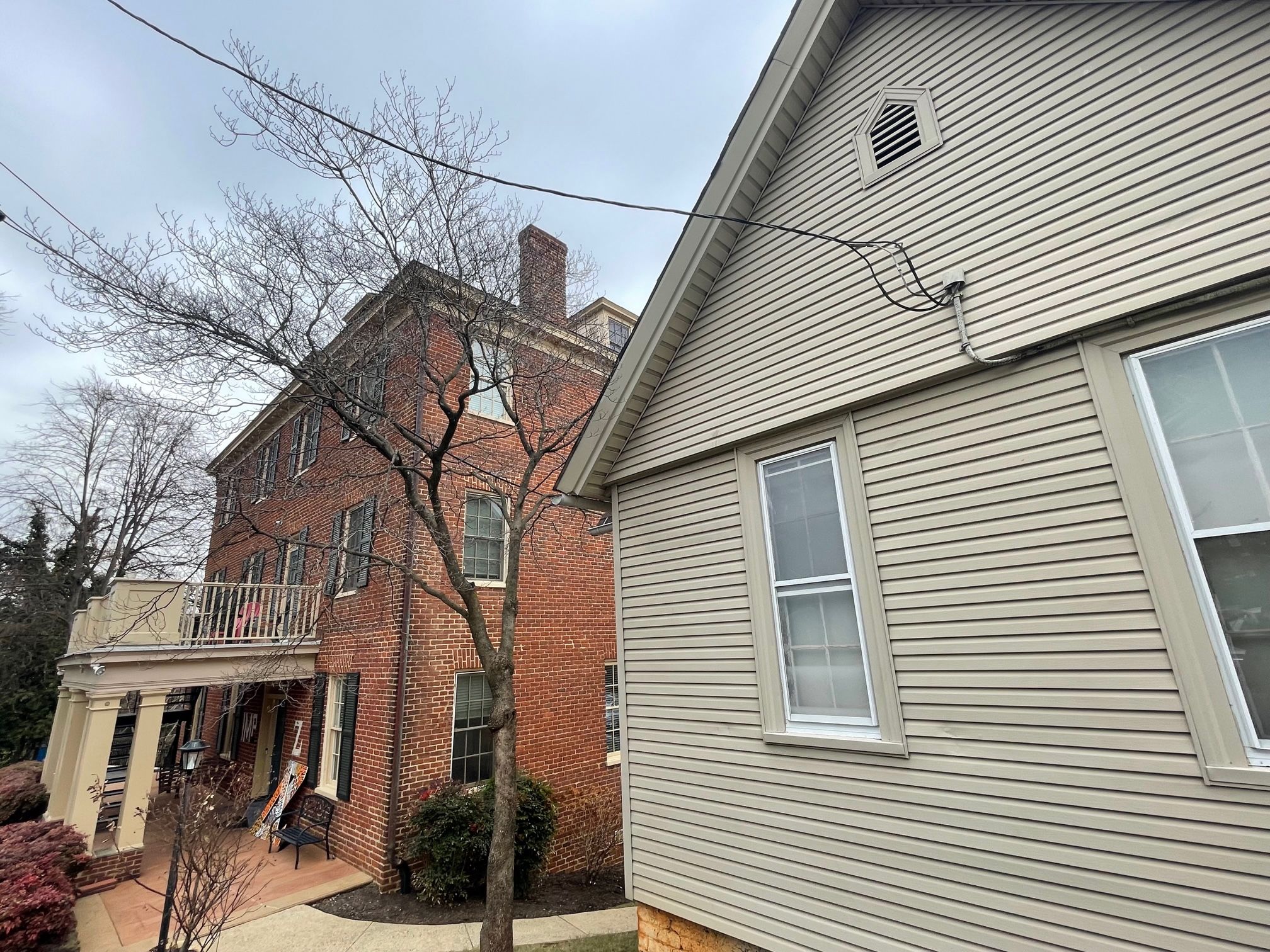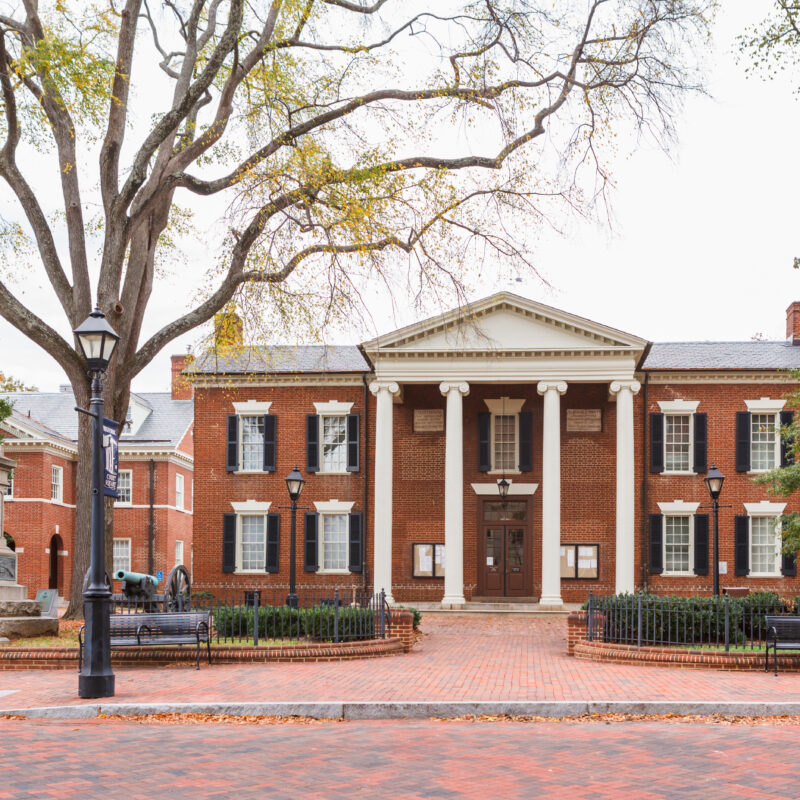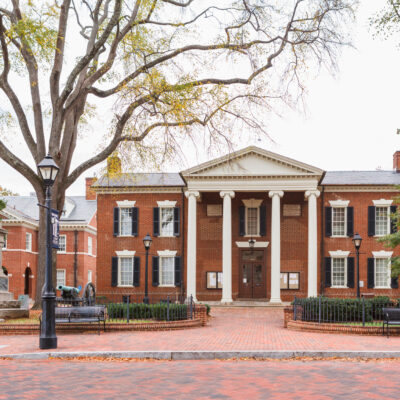Charlottesville’s new development code offers a lot of building possibilities for property owners, but the city’s Board of Architectural Review still has plenty of control in areas designated as historic.
The Delta Zeta Housing Corporation paid $195,000 in 1979 for a triangular property on Chancellor Street that included a former hotel and a one-story building. Kevin Blair, who represented the group, told the BAR the smaller structure has never served any purpose for the sorority except storage.
“There is a tendency, by the interpretation of some, that the building makes an esoteric contribution to the area’s collective architecture,” Blair said. “We believe, however, this should not be the sole consideration in determining its continued existence.”
Blair said a 2013 cost estimate found it would take $625,000 to bring the building up to code to be used for any purpose, and the sorority doesn’t want to make the investment.
However, 144 Chancellor is within one of the city’s architectural design control districts that require the BAR to sign off on demolition. Members were not supportive of the request. Cheri Lewis told Blair it appeared the sorority had deliberately neglected what she considered to be a unique building.
“You can’t just let a building fall down and then say it’s fallen down,” Lewis said. “We have a duty, especially with a historic building, to maintain things.”
A structural engineer hired by the sorority said parts of the building, such as a masonry wall on the western side, are failing.
“The major structural implication is really the foundation,” said Robert Krumpen, a senior engineer at Dunbar.
BAR member James Zehmer had a chance to tour a crawlspace in the building and disagreed with Krumpen’s report. He said there are more creative ways to do repairs that might also be cheaper. BAR member David Timmerman visited the site too and agreed with Zehmer’s analysis, adding that he was also struck by how the building fits into the Rugby Road-University Circle-Venable architectural design control district.
“I looked around and I looked up the street and down the street, and what I realized is that it’s on a street that has a very consistent fabric,” Timmerman said. “It hasn’t been interrupted, unlike a lot of the areas surrounding the university.”
Carl Schwarz, the Planning Commission’s representative to the BAR, told Blair he had sympathy for the sorority but the BAR had to do its job.
“I think you’re right that it probably has served its use in the neighborhood,” Schwarz said. “So you take it to council, you appeal it. If they deny you guys, you put it on the market for a year and then if no one buys it, you tear it down.”
Schwarz said there are no minimum lot sizes under the city’s new development code, which means the property could be subdivided and sold to someone who would use the building. The vote to deny the request was unanimous.
“I think this is a cautionary tale for people who own property in the historic district,” said BAR member Ronald Bailey.
The sorority has until February 5 to request an appeal in writing. The property is within the city’s Node Mixed Use 3 zoning district.






